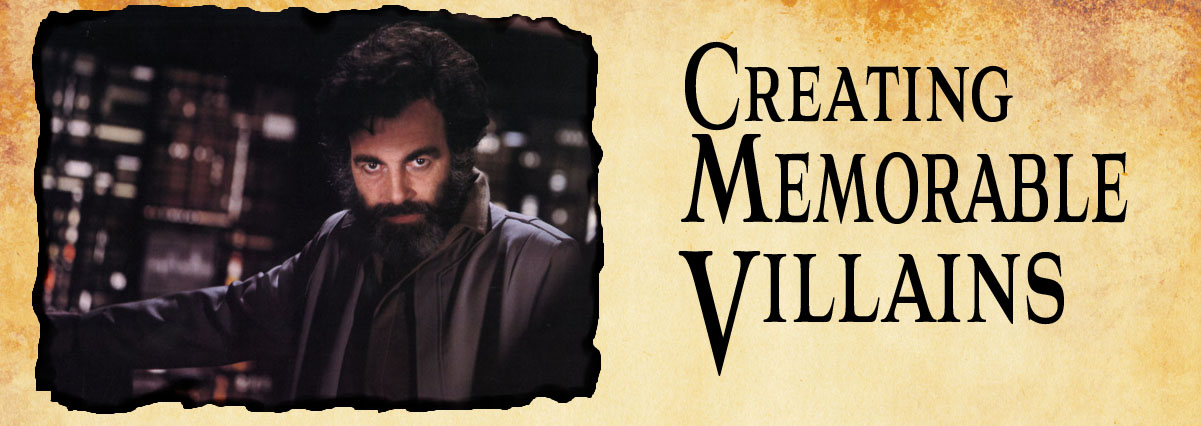First draft of The Phantom’s Blade is done! Coming this Fall 2015 this novel is the highly anticipated fourth installment in The Sword of the Dragon series. I am pleased to present this sneak peak at the novel, its opening chapter. Enjoy!
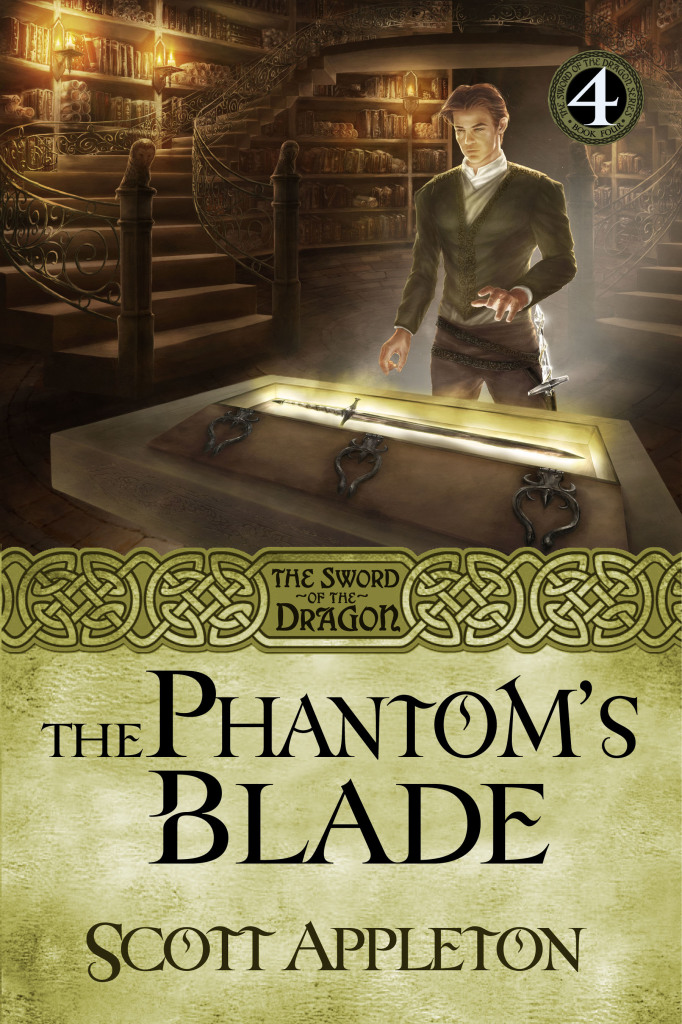 The Phantom’s Blade (The Sword of the Dragon series) book 4
The Phantom’s Blade (The Sword of the Dragon series) book 4
Chapter 1: Despair beyond the Sea
Caritha gazed out over the inlet’s deep blue water to the sea beyond, and she sank to her knees on the sand. Despite the clear sky on this cool afternoon, the sea boiled around the splintered hull of the Maiden Voyage. Sea serpents raised their heads as the coils of their slimy dark bodies squeezed the ship and foamed the water. Somewhere beneath the waves sank the bodies of the captain and the crew. Bravely they had fought to ensure that the last Warrioress made it to dry ground.
Sweat had dripped from the captain’s thick nose as salt water sprayed his face. He had driven a pike into one serpent’s body, drawing its attention away from her. “Get to land, lass! The ship is lost,” he had said.
“No! My sisters and I can fight with you.” She had aimed her sword at another of the creatures as it twisted its length around the ship’s bow. The sword glowed dull orange, but no matter how hard she tried she could throw no energy from it.
“No!” She knew then, knew all too well that her gift to Ombre had cost her more than she had imagined it would.
The deck had buckled, throwing her against the rail. Water had rushed beneath decks and the captain had braced himself, his large feet wide apart. “Fight? You cannot fight in the water. This ship is going down. You have only minutes to make up your mind.”
Another serpent had leaped out of the sea, smashing its length over the prow of the Maiden Voyage, and Caritha had glanced at the monster. But the captain had somehow moved across the splintering deck and grabbed her in his thick arms.
“When this ship goes down the serpents will make short work of all of us, my lady. With God as my witness I’ll not let you die when I could have saved your life.” He had heaved her over the ship’s side. When she had floundered from under the water and her head had broken the surface, a serpent had swum under her kicking feet. But it had ignored her and rammed the wooden ship. “Get to shore while there’s time,” the captain had yelled at her.
She had felt tears stinging her eyes as she, with difficulty, sheathed her sword and swam toward an inlet surrounded by mountains of ice. Her last glimpse of the captain, he and a member of his crew were desperately clubbing a serpent’s body as it coiled around the main mast and snapped it.
Now, standing on that unknown shore with her sisters, she felt hope sink with the Maiden Voyage. Not only had they failed to find a land suitable for relocation, until now they had found no land at all, and now that they had . . . They had landed in a place of apparent desolation and the cold wind whispered down the slopes of the sharp peaks that glistened like diamonds in Yimshi’s light. They were cut off from civilization, far from home without means of returning. It had been a long sea voyage. She couldn’t even guess how far they were from home.
Laura stepped up beside her and laid a hand on her shoulder. Rose’el trailed Levena and Evela as they too joined her.
Rose’el growled as she grabbed fistfuls of her dress and wrung water out the material. Her eyes narrowed as she glanced over her shoulder at the frozen world of white. “I don’t care what’s in that sea. I am going to swim back across, find a little house in the Hemmed Land, force a nice gentleman to marry me, and then settle down until I am old and very, very gray.”
“Be serious for once, Rose’el.” Caritha turned toward the ice mountain that rose a couple hundred feet away from the water. She studied its jagged form, the smooth polish of its surface, and she dropped to the ground and punched the sand.
Laura knelt beside her and rubbed her back. “It will be all right, Caritha. Do not fear. Remember what Father said to Evela when we started our mission to find Kesla?”
Caritha remembered. She recollected the powerful white dragon turning his pink eyes on her and her sisters, as they faced the portal to the Eiderveis River. She had been merely seventeen years old at the time. “I will be watching over you even when you cannot see me,” he had said.
She shook Laura off and rose. “Don’t you see? Things are different now.”
“No they are not!” Laura said.
“Look around, my sister. Better yet, take a look at the sea and tell me if you see anyone alive. Where are the captain and the crew of the Maiden Voyage? Do their lives matter to you? And what of Ilfedo, Oganna, and Ombre? They are waiting for our return before they set out to find the dragon Venom-fier. We have failed and they have no way of knowing.”
Laura and Evela hung their heads. Levena sniffed.
“Feel glad that we are alive,” Caritha said and covered her face with her hands. “But weep that so many have died on our account.”
She withdrew her hands from her face. Why hadn’t she noticed before that the shore on which she stood and the mountains of ice . . . they were familiar somehow? White clouds rose over the ice mountains, sailing over the peaks and filling the sky. A frigid wind caressed her arms, threatening to turn her wet dress into ice.
The sandy ground trembled and the mountains of ice crackled, sounding like miniature releases of thunder. Something living warbled in the distance. Between the mountains before them a long-necked creature slid into view. As it drew closer, Caritha caught her breath, for the creature was enormous with four flippers for limbs. It was as white as Albino, with a bulbous blubbery body.
From the creature’s nostrils water shot forth and struck her. Her sisters fell back and rolled into the inlet. But she drew her sword and closed her eyes, with all her might focusing on deflecting the water. The sword fed off her dragon blood, splitting the water to either side of her. The creature kept up its deluge until Rose’el and Levena stumbled to Caritha’s side and joined their blades with hers. Blue energy blasted from the united blades, knifed through the water and struck the creature’s head.
The creature warbled as the water ceased to flow from its nostrils. It lumbered back a hundred feet and warbled toward the mountains. Suddenly the mountains filled with innumerable warbles and another of the creature’s kind slid into view. Only, when it approached, it loomed even larger than its companion.
Its head rose far above them and it smiled down upon them. Needle-like teeth ringed its enormous mouth. It dwarfed even the great albino himself.
“Daughters of the great white dragon, how foolish of you to come to my lands. Do you not know that all who come here are never heard from again? Not even your dragon father could save you from the fate you have brought upon yourselves, for he dares not touch me. I am Cromlin, king of the water skeels, and today your lives are at an end.”
His nostrils cast water upon them and, as they threw their swords up to block the deluge, beams of light shot from his eyes. The beams cut through their defenses, and struck them to the ground.
They ran toward him, swords aimed for his thick body. They reached him and stabbed. The blades sank up to their hilts, yet drew no blood. Cromlin gazed down upon them and warbled, while his companion did the same. The sound rang into the mountains, into their ears, and built its intensity.
Pressure built in her ears. Caritha saw first Evela and then Rose’el drop to the ground, putting their hands to the sides of their heads. Soon she, too, succumbed.
Cromlin lumbered toward the inlet and smashed his fore-flippers together. A wave of sound struck Caritha’s chest, forcing air out of her lungs.
Addressing them in a voice that rang around them and into the ice mountains, Cromlin said, “You have fought worthy of a Water Skeel.” He lowered his neck, bringing his head within ten feet of their heads. “But you are no match for me!”
Caritha felt exhausted. She tried to summon her dragon blood. It warmed, then cooled inside her. She glanced at her sisters, but their faces froze in terror and tears formed in their eyes. Cromlin pulled back his head and a stream of water from his nostrils slammed into Caritha’s chest. The impact threw her and her back crushed against a boulder. The water continued to storm upon her, unending and unyielding. Every bone in her body conformed to the stone against which she was pressed, painfully stretching and bruising her body.
Beside her, Rose’el was pressed into the sand beside Levena, unable to move from under the water’s force. On Caritha’s other side Laura and Evela raised their swords into Cromlin’s onslaught.
Painfully raising her own sword, Caritha touched her sword tip to theirs. “Join with me, my sisters!” A wall of energy formed between the swords, a wall that surged against the water and turned it away.
Cromlin laughed and bore down upon her. His gargantuan body slammed into the beach. He slapped a flipper atop Rose’el and Levena, and struck Caritha, Laura, and Evela with the other. She might as well have attacked a wall as defend against so large a flipper. It rammed her against the boulder, and then withdrew.
“Your puny powers cannot compare to the might I wield!” Cromlin slid to the inlet and dug his flippers into the water. Five large cubes of ice formed between his flippers and he effortlessly plucked them out and chucked them at Caritha and her sisters.
Caritha glanced to either side, but her sisters had been separated too far from her to intercede. As a cube shot toward her, time seemed to slow. She watched it somersault through the air and felt, as it were, ice darts precede the object. Stabbing pain peppered the front of her body. She could barely move.
Tears that she longed to cry refused to come as she struggled with her sword. At last she managed to sheath it. She reached with a trembling hand into her pocket and untied the precious ring that Ombre had given her, slipping it onto her finger. Her body temperature dropped and icicles formed on her hair, hanging in front of her face—she was freezing alive!
But with her last moment of consciousness, as the end embraced her, she laid her hand against her chest and looked down at the engagement ring. The diamond glistened as ice covered it. She should have said yes to Ombre a long time ago. Now it was too late. “But I do love you,” she whispered. “And if God had allowed me to see you again, I would have been fully yours.”
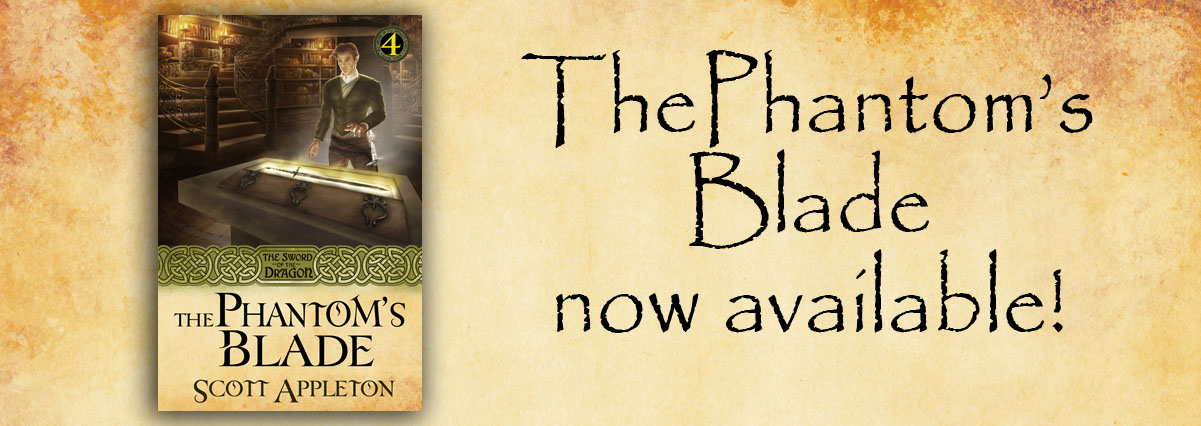
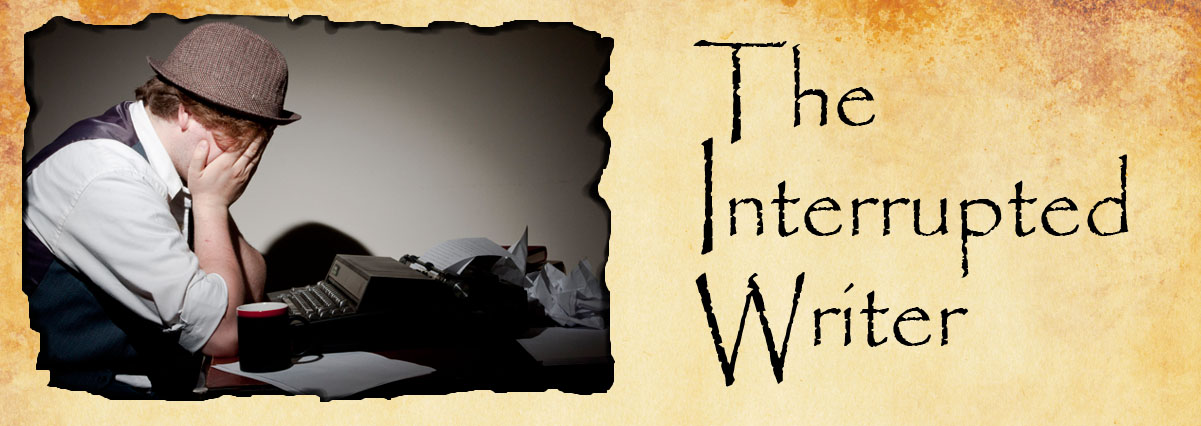
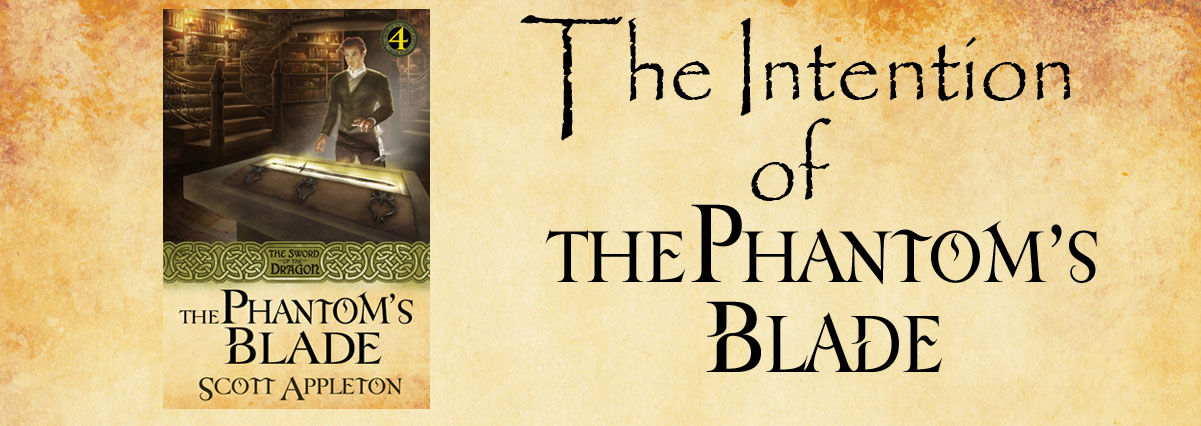
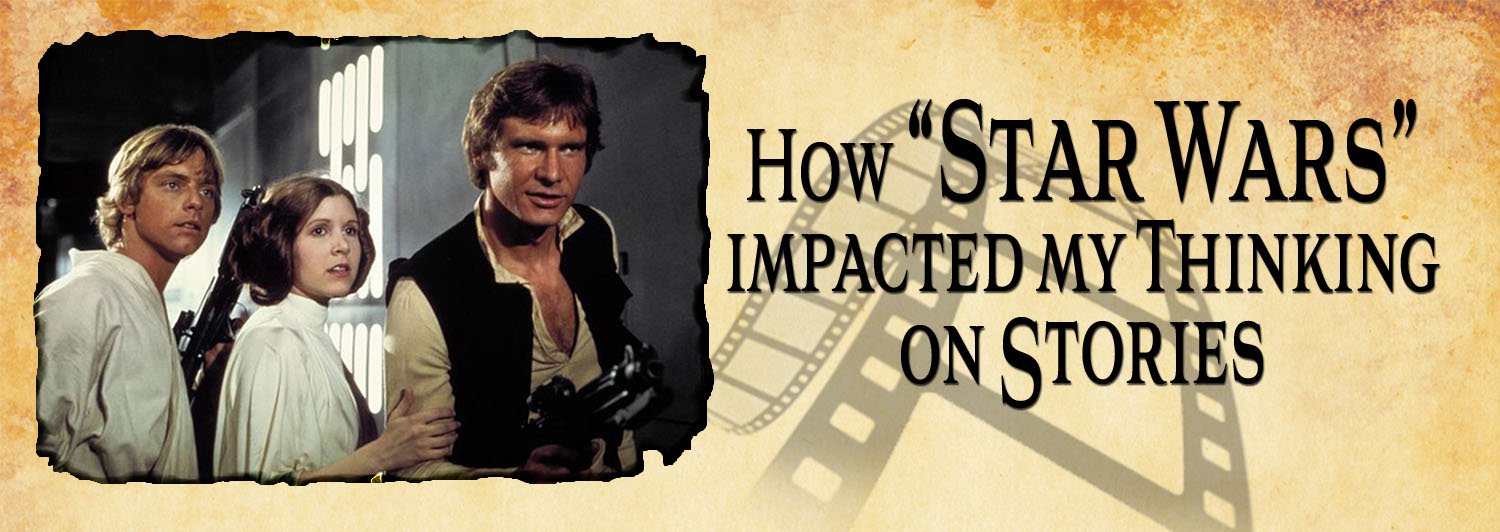
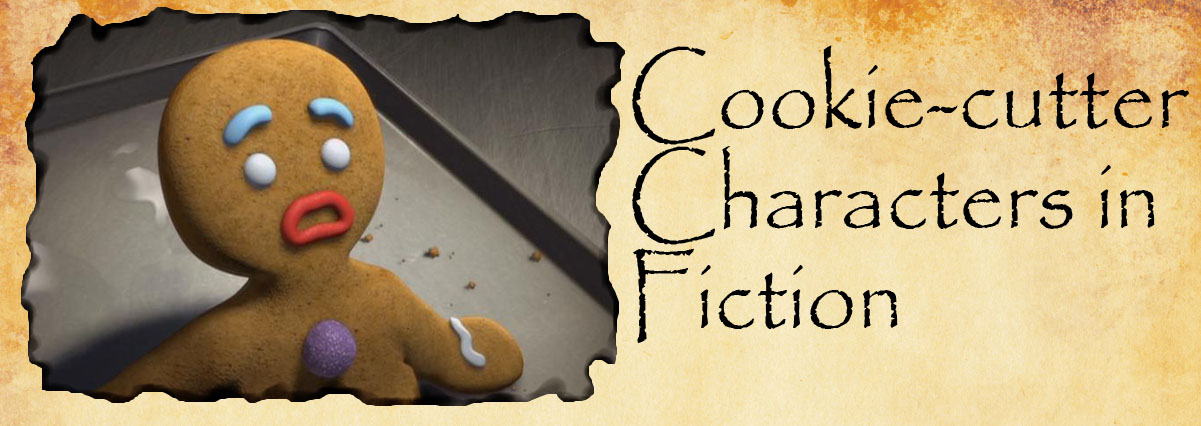
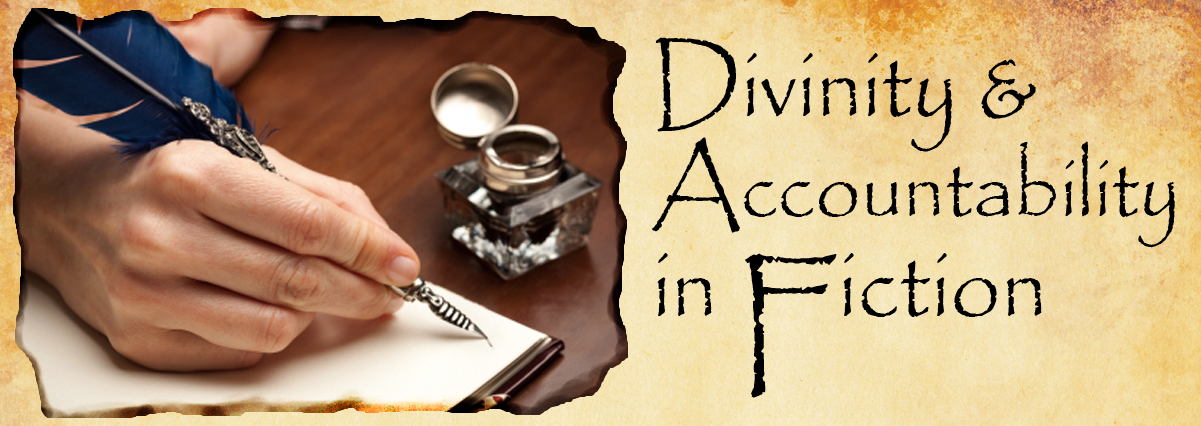
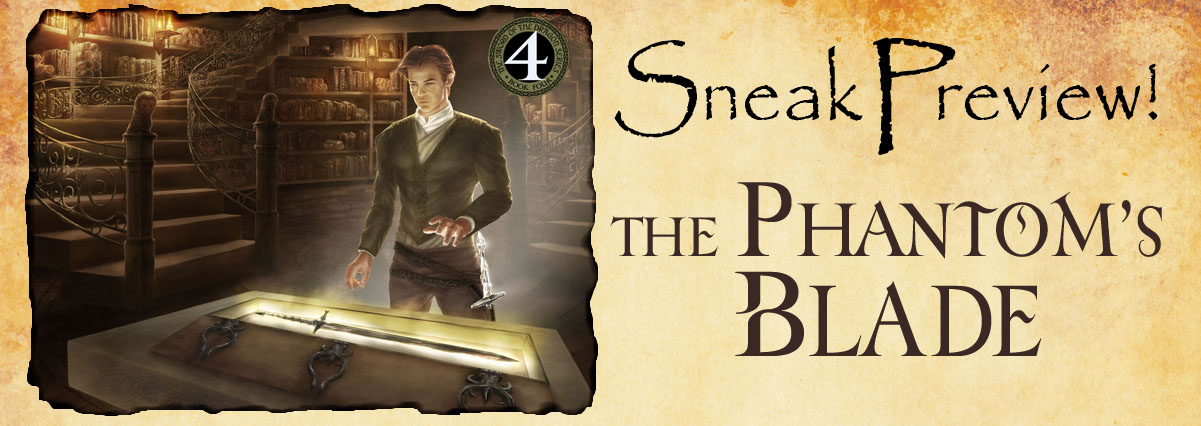
 The Phantom’s Blade (The Sword of the Dragon series) book 4
The Phantom’s Blade (The Sword of the Dragon series) book 4